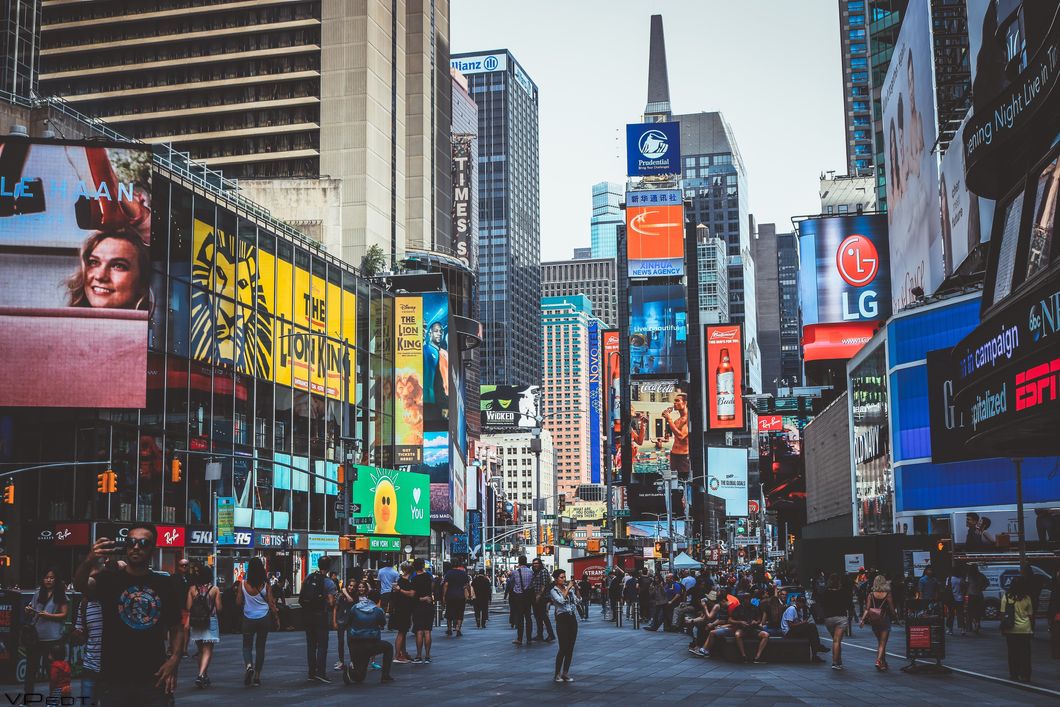I don't just like Broadway musicals because they astound. I don't just like Broadway shows because they are brilliantly done, or because they get me singing tunes unique to everything else on the radio. I don't just like them because I know nothing compares to the feeling of standing outside a theater, ticket in hand, hearing the blares of New York City's taxi horns or the loud hustle of voices crowding the sidewalk. The reason I like them, and become so engaged, is because amongst all the singing and dancing and relative dramatics, I see myself.
"History has it's eyes on you." From my seat in the orchestra section, I smile at this line. Not only is it so exquisitely sung by the dark skinned, blue coated revolutionary on stage, but because it is such an intelligent way to convey the image of the battered, but brilliant, rebels that serve as the focus of Hamilton. Of course, there's nothing about the musical that's not extremely intelligent or well-researched. It introduces the fact that those in history are flawed, not the cardboard cutouts we paint them as. It's what drew me to the show in the first place, and what keeps me listening. It's what got me reading the entirety of Alexander Hamiltonby Ron Chernow and up to the Constitution Center in Philadelphia, solely to learn more about the topic. The realization that these figures, though living long ago and conquering near impossible odds, are ones I can relate to stimulates my intellectual curiosity and brings new intellectual dilemmas I love exploring.
There's also a scene in the musical Next to Normalthat perfectly captures the feeling of struggling with mental illness in the midst of a loving family who can't understand.The mother is seated between two men, one her husband telling her he thinks he knows what she's going through, and the other her son, a figment of her imagination as a personification of her disorder, comforting her. Each supposedly bring messages of love, but only the son's can truly reach her. As one who has been in the mother's place, I remember the feeling of a whirlwind swirling inside the head while the only "sane" thing heard is the disorder's "'voice'". I have since conquered this adversity and become stronger because of it, so I can recognize the intelligence of such a scene as this while still feeling completely understood. It's an impressive feat, the way the show brings my feelings across to a populace who may never have experienced them, so how can I not harness that understanding and try to do that for others. If there's just a chance that what I've gone through and learned can be helpful, like this show was to me, then I want to explore that idea.
There's also the musical Falsettos, brilliantly capturing what it means to try and fit into society while struggling with preconceived notions of sexuality and gender roles, and The Book of Mormon, full of humor directly reflecting my own questions about religion, and so many more too numerous to mention. If I wish to learn even more, there are books written, scripts annotated, and interviews filmed, all I do use, but there's nothing like connecting with other fans of the same shows. We are related through our love of these concepts and characters; I often read extraordinary insight not written by professionals, but by others like me who saw something they connected with.
"I'm just like my country, I'm young, scrappy, and hungry," is the indirect slogan of Hamilton and yet is an element of Broadway in which I directly see myself. I'm "hungry" for new knowledge and experiences, "scrappy" in defiance to established social and political norms I disagree with, and "young" and ready to use this defiance and knowledge to make a difference in my community and my world.
















